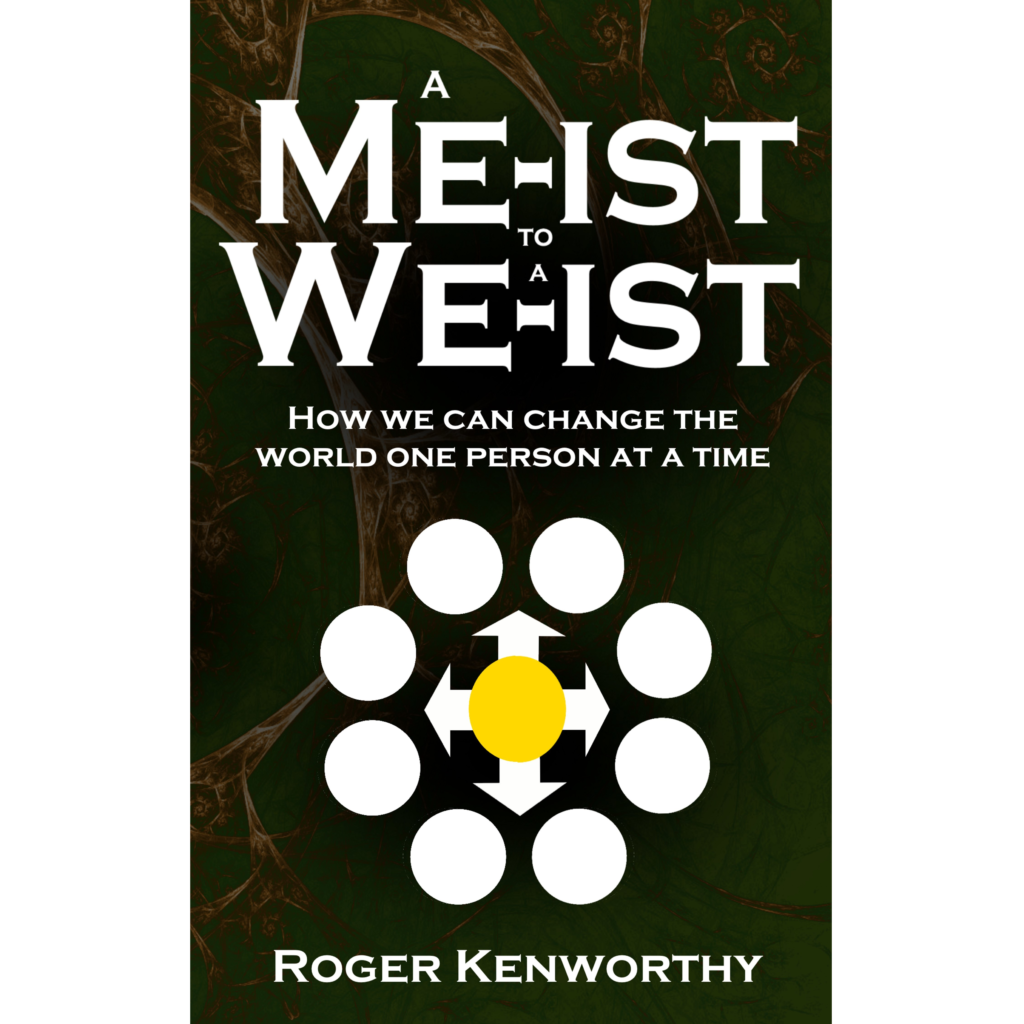
Chapter Two
Be kind to the planet
Our Earth is populated with roughly 7.4 billion people as of August 2016, according to Wikipedia.com (World Population, https:// en.wikipedia.org/wiki/World_population). By the year 2100, a United Nations report estimates that number will grow substantially to around 11.2 billion. The sheer numbers of our species will put even more stress upon our world’s environment, energy resources, and food supplies. While our future may appear bleak, there is also a source of hope when we change our attitude about being a Me-ist to become a We-ist. This can be a great moment in history as H.H. The Dalai Lama writes about our present circumstance, “This crisis in bringing us an opportunity to experience what few generations in history ever have the privilege of knowing: a generational mission; the exhilaration of a compelling moral purpose; a shared and unifying cause…to put aside pettiness and conflict…and the opportunity to rise” (George, 2009). Being kind to our planet is not just buying fuel efficient automobiles and riding bicycles; turning down our home’s nightly temperature and changing to more efficient light bulbs; or recycling and buying less manufactured goods. Author James George (2009) nicely sums up our present situation, “The real bottom line, then, is to see that we are in a spiritual crisis that is widely misperceived as an environmental or an economic or a social crisis.
Earth Mother is screaming for our help to help ourselves: we can invent all sorts of new electronic gadgets; create unlimited social sites to consume our time; and design countless video games to distract us from being who we are or why we are here on the planet. These material goods cannot and will not help our environment…we must create new thinking to manifest as new people, a world of more caring and compassionate people that are kind to our planet. The shift in our fundamental thoughts, words, and actions towards ourselves and, hence, to others, creates new behaviours and values that are helpful to our environment and to us. As we have a spiritual awakening, our hearts and souls are also changed from being a Me-ist to a We-ist. What an extraordinary life it would be. Does each one of us have to change at the same moment to impact the world around us? No. The teachings of G.I. Gurdjieff (1991) reflect his ideas about what it takes to make real change on our world, “two hundred conscious people, if they existed and if they found it necessary and legitimate, could change the whole life on earth.” Once We-ists begin to change to Me-ists, a new paradigm is formed and then the momentum from such an occurrence will carry us to a new and better world.
The idea behind becoming a We-ist when you are a Me-ist at the present moment is to shift your focus from your Self to others, and your attention can be centred upon a person, animal or the environment. Let’s consider what happens as you focus upon another individual. When you shift your focus, you can help others feel important, self-confident, and worthy of love, success, and happiness. What single word leaves the greatest impression upon others…their name. Every time you meet a new person be sure to remember and use their name, nothing else is sweeter to your ear than your own name. We can help others become more self-confident by following these few steps. If we are supportive and not critical of others, this simple act is conducive to building a person’s self-confidence. When we spend time with someone else, this is when we can reinforce what they do well and not what they don’t do so well. These are ways to refocus upon others and not focus upon your Self.
When you shift your focus upon the creatures that you encounter on a daily basis you help that stray dog or cat by supplying them with a loving home. Millions of people world-wide agree with your decision to have a pet; surely, we all cannot be wrong. Why? You win because research indicates that owning a dog, cat or other animal companion is beneficial psychologically and physiologically (Crain, 2013). First, when you have a pet you are more active and this aids in increasing your heart rate and boosts your energy. Since you are active, you have a greater chance of lowering your chances for obesity, lowering your blood pressure, and your cholesterol too. Second, having a pet increases your feeling of empathy, a positive reaction that is flooded with positive energy as you put their needs before yours, which increases your compassion. Third, your pet needs you to feed, exercise, and water them which increase your empathy. In turn, you feel needed; your dog is never ever judgmental of your actions. Last, petting your dog or cat releases huge doses of positive hormones, serotonin and oxytocin, throughout your system which reduces your cortisol (Niven, 2007). Do you want to become a We-ist? Adopt an animal… today.
When you shift your focus upon the Earth Mother you are helping her survive and therefore enabling your children, grand-children, and great-grand-children an opportunity to live a long healthy life upon our one and only terrestrial home. The focus of this chapter is how we can change from a Me-ist to a We-ist by being kind to our environment. Let’s start with the three R’s: reduce, reuse, and recycle. It appears that the 3 R’s appeared on the first Earth Day in 1970, within the Environmental Handbook edited by Garrett De Bell and published by Ballentine/Friends of the Earth (www.urbanore.com). The 3 R’s are effective because they are simple imperatives, commands that leave an impression upon our minds to take action to do something positive for our environment. In the process, we benefit emotionally and spiritually from our selfless actions to save the world from pollution.
First, according to Rob at the Green Guide for Everyday Living, reduce “…is dubbed as the mother of all 3 R’s and it should be the first rule to consider when making any task at home.” For example, it is important to work upon reducing energy, materials, and electronic gadgets where you live. Making these simple choices to reduce the waste and consumption in your home is a big step to caring for the Earth and taking the focus off of you and onto something bigger and more important than yourself.
Next, pay particular attention to what you buy and why you buy it; this prudent decision helps our environment. It is easy to say reduce buying clothes, mobile phones, jewellery, shoes and so forth for many of us; however, this attitude swims directly against the current of our modern-day consumer driven world. The government measures economic success by how much we spend. The neighbourhood gauges you on the size of your house, the make of your car, and the price of your toys. The media, in its many forms, pushes the idea that more is better and you are worth more because you have more. This is not true wealth and happiness in life; it is spiritual and emotional poverty that occurs when you face unbridled shopping. What can you do? If you have a problem, acknowledge that you have the problem; don’t deny it exists. Many of us have real problems and issues when it comes to being able to reduce what we buy. The problem is maybe that you are a shopaholic; but don’t feel embarrassed or ashamed of this condition because you’re not alone…far from it. The well-known New York psychologist, Dr. April Lane Benson, estimates that over 18 million Americans are shopaholics. It’s a staggering number of people who suffer from this dilemma, and this is why Dr. Benson created Shopaholicnomore.com. If you think that you or a loved one has a shopping or spending issue, you can visit the site and download their free self-assessment questionnaire to discover if there is a reason for concern as well as what to do about it. This site and its useful information could change your life forever.
You can pick-up your digital or paper copy of A Me-ist to a We-ist at Amazon. Enjoy the read and a review would be greatly appreciated to help get the word out and help save our planet and our species from the portal of extinction.
 Meditation is our connection to the spiritual world.
Meditation is our connection to the spiritual world.